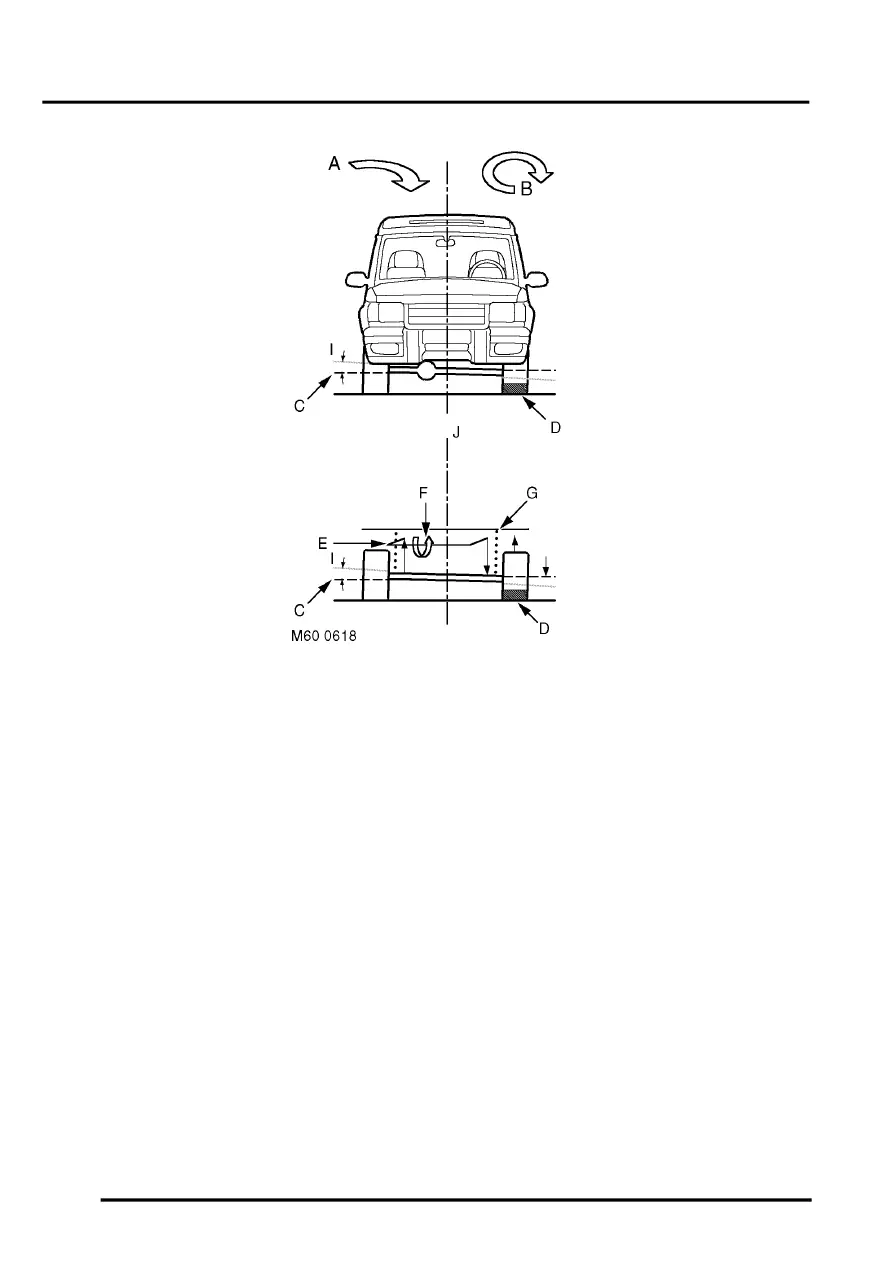Discovery II

FRONT SUSPENSION
60-10
DESCRIPTION AND OPERATION
ACE system
a Direction of travel - Right hand bend
b Body roll
c Axle roll
d Tyre squash
e Torsion/Anti-roll bar
f Direction of torsion/anti-roll bar twist
g Coil springs
h Body roll angle
i Axle roll angle
j Reduced body roll angle with ACE system
The system is electrically and hydraulically operated with all operations controlled by an ACE ECU located behind the
glovebox in the passenger side footwell. The ACE system comprises front and rear torsion bars and actuators, two
accelerometers, ECU, hydraulic pump, valve block and a fluid reservoir.
The ACE system gives improved vehicle handling and suspension characteristics and is active for both on and off-
road driving. This is achieved by hydraulic actuators applying torque to the front and rear torsion bars in response to
lateral forces sensed by accelerometers. The ACE system prevents body roll with cornering forces of up to 0.4 g. From
0.4 g there is a progressive increase in body roll but significantly lower than a passive system. A passive system will
have a progressive increase in roll angle as soon as cornering forces are applied and will have a higher roll angle than
the ACE system for the same cornering force.
The ACE system can also detect if the vehicle is driven off-road. If off-road conditions are detected the ACE system
operation will be reduced or completely disabled at a speed of 25 mph (40 km/h) or less.
Lateral acceleration of the body is sensed by two accelerometers and signals are transmitted to the ECU. The engine
driven hydraulic pump supplies a constant hydraulic flow to the valve block. Two directional control valves are
solenoid operated by the ECU and these supply fluid to the applicable side of each actuator to apply an equal and
opposite force to the torsion bar. In operation the ACE system maintains the attitude of the vehicle body when
cornering.
